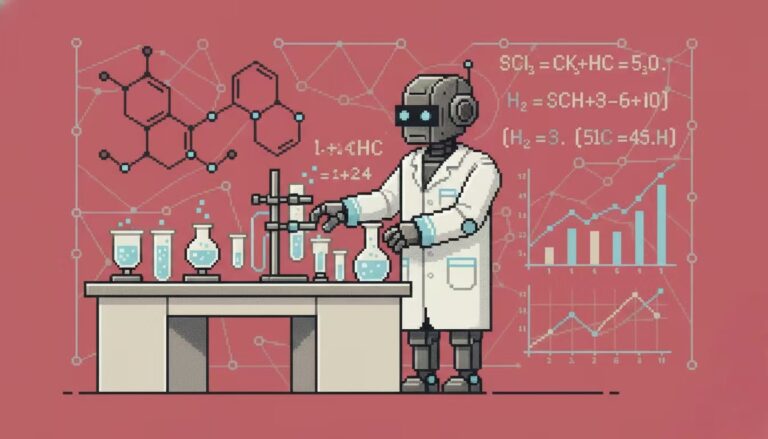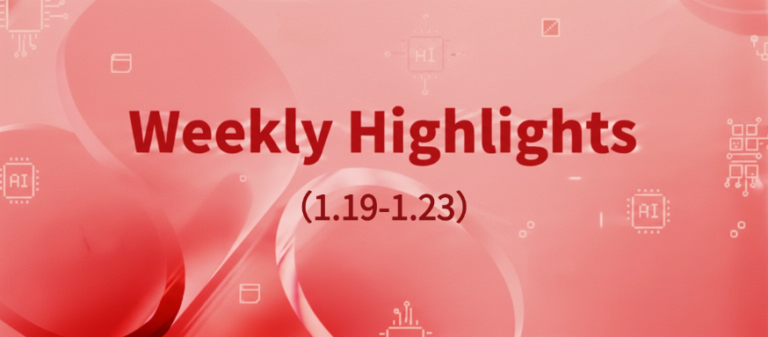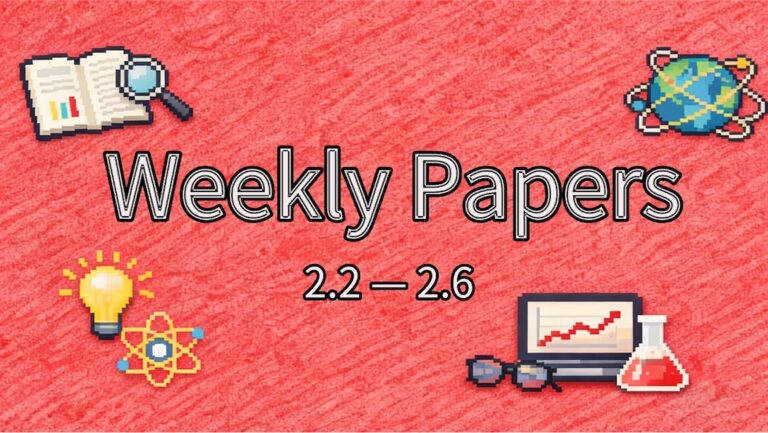Command Palette
Search for a command to run...
Determined to Achieve the First AGI in Biology! Medical AI Company Owkin Builds the world's Largest Cancer Spatial Omics Dataset
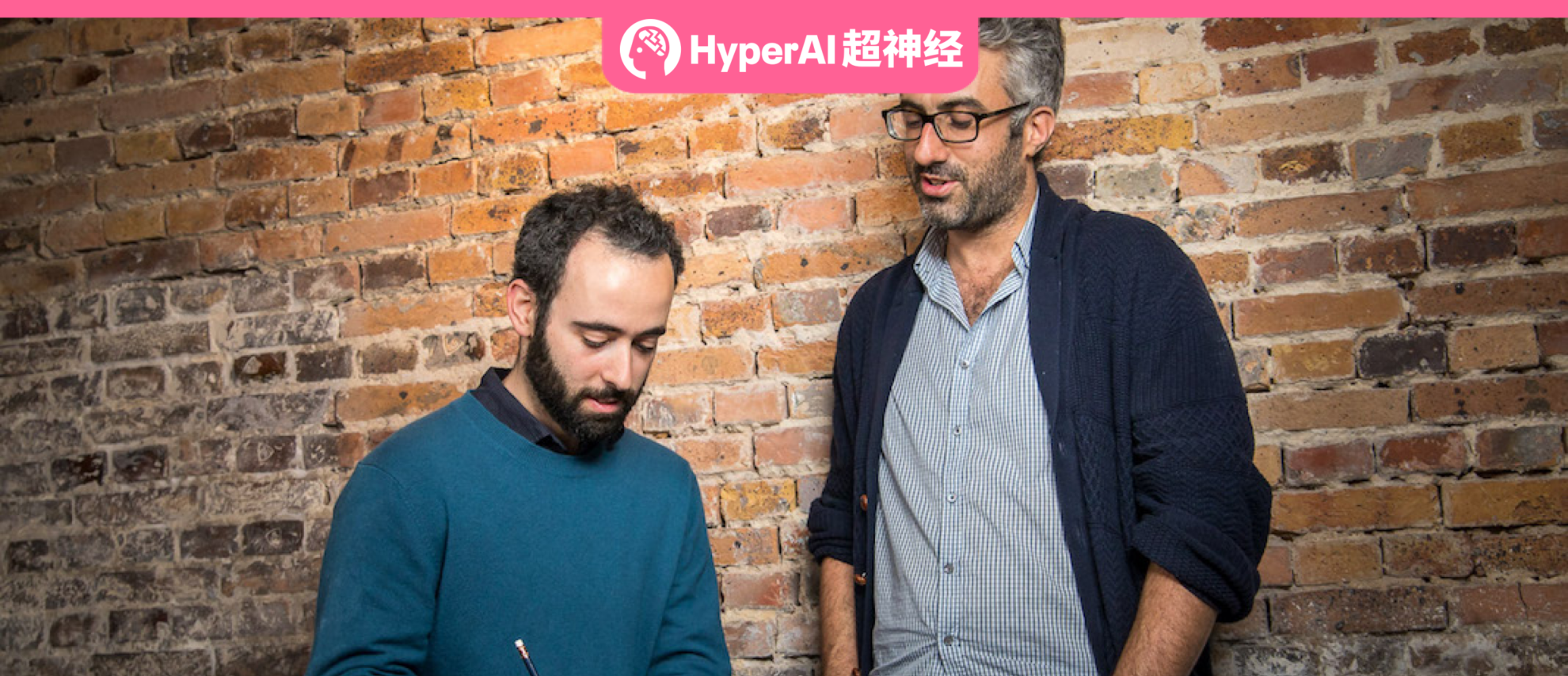
Medical AI is not a new topic, but the recent statement by Cathie Wood, CEO and investment president of Ark Investment, has once again ignited market enthusiasm. In her opinion, healthcare is the most underestimated AI application field at present, and its potential in precision diagnosis and treatment and drug development has not yet been fully tapped. This view has not only attracted the attention of the capital market, but also directly led to stock price fluctuations in medical AI-related sectors, highlighting the huge value of AI technology in the medical field.
In this wave of AI-enabled precision medicine, Owkin, as the first end-to-end artificial intelligence biotechnology company, is at the forefront of the industry with its leading machine learning algorithms and federated learning technology. The company solves the patient data privacy issue that the public is most concerned about. By integrating multimodal data from different institutions (such as genomics, spatial omics, clinical data, etc.), it helps researchers and doctors deeply explore the potential of medical data, which not only accelerates the discovery of biomarkers, but also provides a reliable decision-making basis for precision medicine, and helps the diagnosis and drug development of cancers such as breast cancer and colorectal cancer.
Since its founding in 2016, Owkin has received over $100 million in funding and has been supported by a number of institutions including Google Ventures and Sanofi. The company has also been named one of the 20 most noteworthy AI startups in France, one of the most noteworthy medical and technology startups in 2023, the Best Medical Technology Award, and the Forbes AI 50.
Putting patient privacy first and breaking down data silos with collective intelligence
Owkin's success is inseparable from the professional background and common beliefs of its two founders. One of the founders, Dr. Thomas Clozel, was an assistant professor of clinical hematology and oncology. This experience gave him a deeper understanding of how to help patients and inspired his determination to use technology to improve medical outcomes. Another founder, Dr. Gilles Wainrib, has been exploring the field of AI biology for a long time and has published many papers in neural networks, machine learning, drug discovery, and precision medicine. The two of them founded Owkin together with their common belief in AI empowering healthcare.
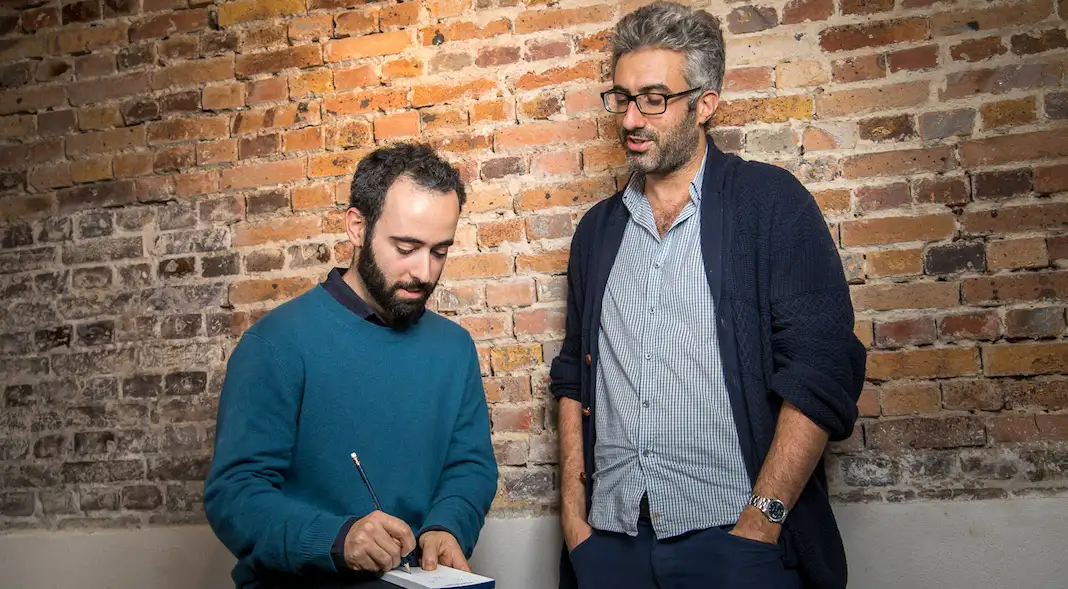
Owkin's core mission is to achieve precision medicine, that is, to tailor treatment plans based on the unique biological characteristics of each patient, avoiding the traditional "one size fits all" treatment model.This need is urgent because cancers can vary genetically and symptom-wise from patient to patient, yet many patients still receive the same treatment regimens, which can severely limit their effectiveness.
Owkin is taking the path of using AI technology to identify different biomarkers in multimodal patient data, classify patients into subgroups, match each type of patient with the best therapeutic target, promote target drug development, optimize disease diagnostic tools, and achieve truly personalized medicine.The key to achieving the above goals lies in how to share data while ensuring patient data privacy?
In the past, researchers often explored specific areas of their own interest, resulting in "data islands". Thomas Clozel believes that real innovation comes from interdisciplinary integration. If multimodal data such as clinical, single-cell, spatial omics, and histology can be integrated, and data scientists, clinicians, academics, and pharmaceutical companies can participate in research together, it will accelerate the discovery of new disease mechanisms and develop more targeted precision medicine methods. In other words, data sharing is one of the solutions. However, medical data contains sensitive personal information, and data sharing is often accompanied by the risk of privacy leakage, which makes many medical institutions hesitate.
To address this problem, Owkin uses Federated Learning to solve it. Thomas Clozel simply defines it as allowing major institutions to jointly train artificial intelligence models without sharing data.
Specifically, federated learning allows multiple data providers (medical centers, research institutions, biopharmaceutical companies, etc.) to collaboratively train machine learning models in a distributed manner. That is, patient data is always kept on their respective servers, and only algorithms and prediction models are transmitted between servers, that is, algorithms are sent to different data centers and trained locally. After training, only the algorithm returns to the central location, and the improved prediction results are sent to each local dataset and further optimized. As shown in the figure below, through this approach, Owkin has integrated 11 modalities of patient data from 83 partners.

In short, federated learning unlocks data on a large scale while ensuring patient privacy. At the same time, the conclusions or research results obtained by analyzing different data can be shared collectively, thereby accelerating the progress of medical research. In order to promote the popularization of this technology, Owkin has open-sourced the federated learning software Substra, which can be used for clinical research, drug development, etc.
Open source address:https://github.com/substra
It is worth mentioning that in June 2023, Owkin launched a project called MOSAIC (Multi-Omic Spatial Atlas of Cancer). The company cooperated with top cancer research hospitals to collect multimodal data from 7,000 patients for 7 refractory cancers (NSCLC, ovarian, bladder, mesothelioma, glioblastoma, breast cancer, DLBCL). It is reported thatThis is the world's largest cancer spatial omics dataset.This data is 100 times larger than existing datasets. Using this data, Owkin can develop advanced artificial intelligence algorithms and provide treatment recommendations.
MOSAIC Address:
https://www.mosaic-research.com
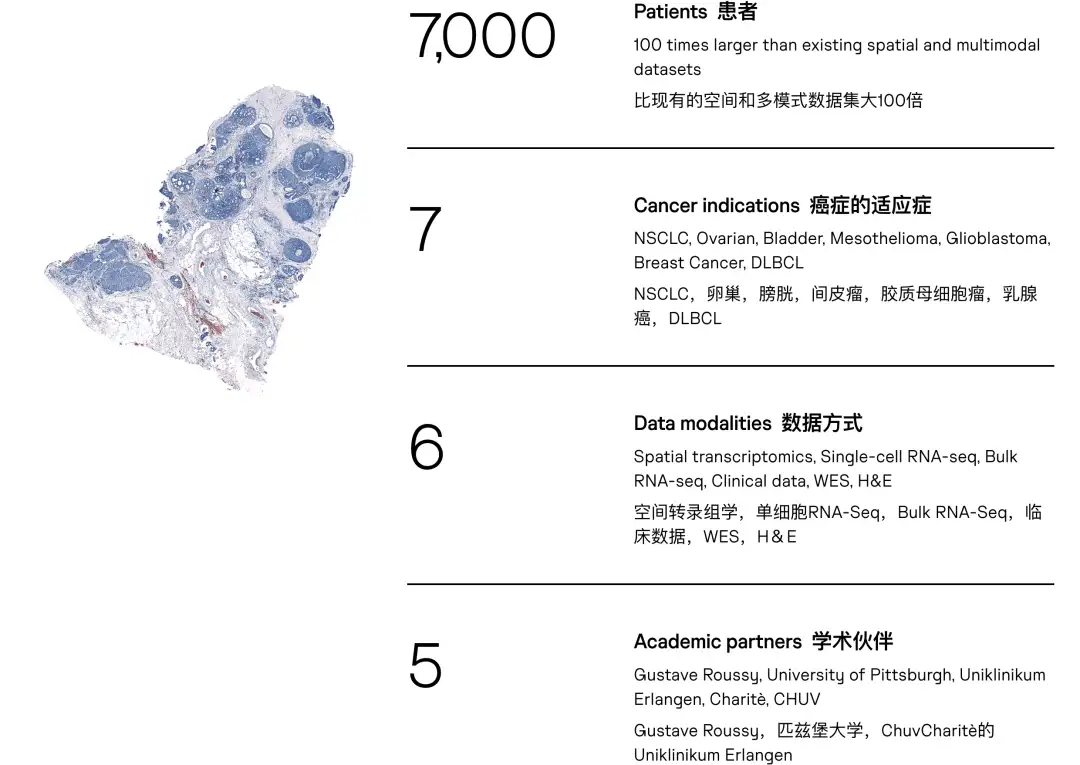
Aims to achieve the first general artificial intelligence in biology
In January this year, Owkin announced that it would integrate the methodology and AI Agent it has accumulated over the past eight years into a system and launch Owkin K1.0 Turbigo, aiming to achieve the first general artificial intelligence (AGI) in the field of biology. Thomas Clozel said: "Owkin's goal is to make Owkin K the standard operating system in this field. We hope that every pharmaceutical company, biotechnology company and academic research institution can use our system to innovate the way they conduct research and break down long-standing barriers and data barriers."
Specifically, the K1.0 system integrates multimodal data from more than 1 million patients and uses basic models and large multimodal models for analysis to provide partners with in-depth biological insights. At the same time, Owkin's wet lab will verify the biological insights generated by AI and feed back new experimental data to K1.0 to continuously enhance the performance of the model. This closed-loop design of "data-model-experiment" enables K1.0 to be continuously optimized.
The K1.0 system has a wide range of applications, supporting biomarker discovery, target identification, patient population screening, clinical trial optimization, and AI diagnostic development. All functions are based on newly discovered biomarkers and aim to promote the development of precision medicine.
Currently, the system has supported pharmaceutical giants such as Sanofi, BMS and AstraZeneca. The system's first development project is OKN4395, a triple inhibitor of EP2/EP4/DP1 for solid tumor patients, which has been administered to patients in Phase I clinical trials. At the same time, Owkin's target identification tool TargetMATCH and drug positioning tool DrugMATCH are also helping partners develop their pipelines.
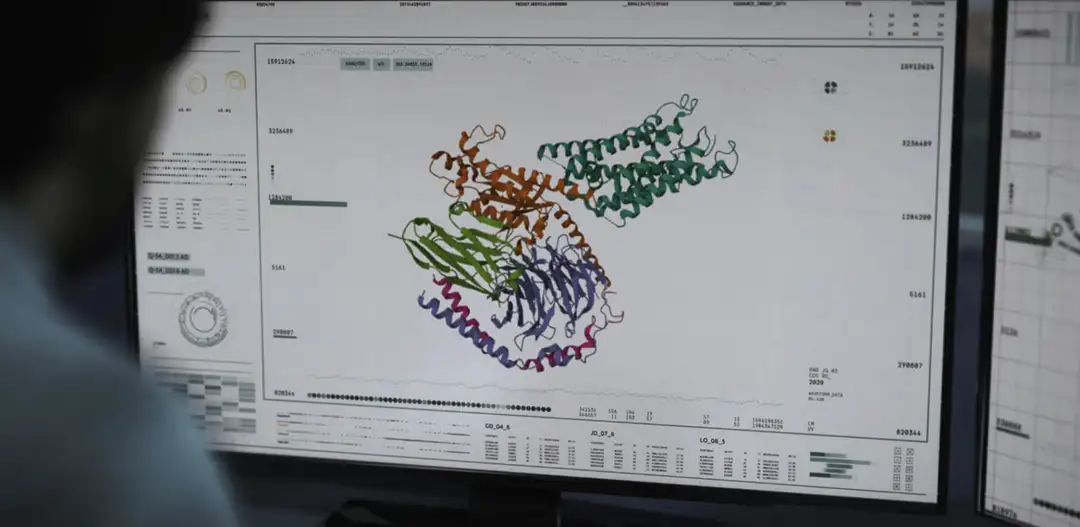
In addition to its outstanding performance in drug development, Owkin has also made significant progress in cancer diagnosis.
In clinical practice, doctors often find it difficult to accurately predict which patients will relapse and which patients will remain stable. However, this predictive ability is crucial for developing personalized treatment plans. If patients with a high risk of relapse can be accurately identified, doctors can adjust treatment strategies in a timely manner and strengthen treatment intensity. For patients with stable conditions, unnecessary treatment interventions can be reduced and the quality of life can be improved.
AI technology can not only improve the efficiency of biomarker screening, but also give priority to emergency cases, deeply analyze patient prognosis and treatment response, and help doctors make decisions faster and more accurately, which is especially important for areas with limited medical resources. In response to this demand, Owkin has developed a number of cancer diagnostic tools, including colorectal cancer diagnostic tools MSIntuit® CRC and MSIntuit® CRC v2, and breast cancer diagnostic tools RlapsRisk® BC.
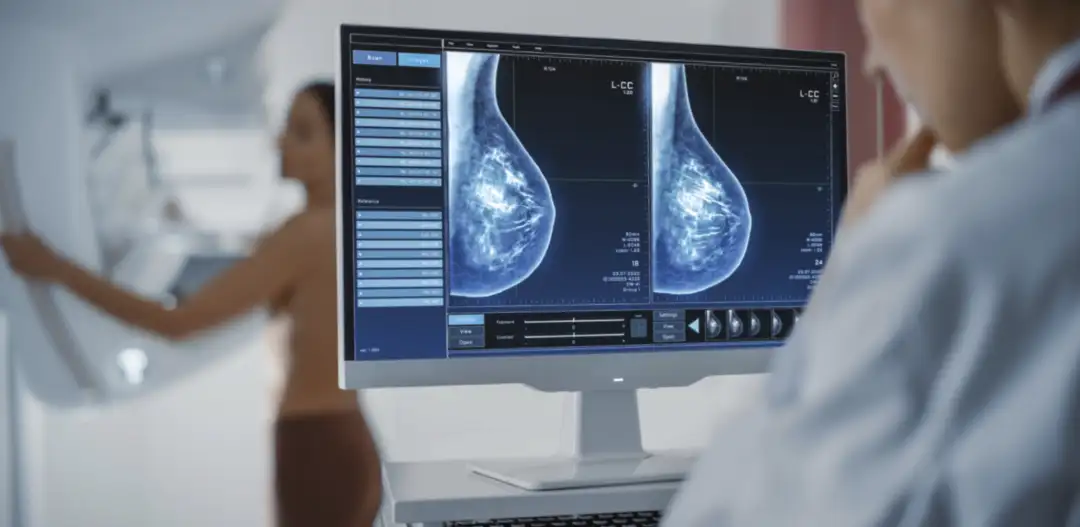
In November 2024, Owkin worked with AI tumor pathology company Proscia to integrate its MSIntuit® CRC v2 tool into Proscia's Concentriq® software platform to help pathologists pre-screen MSS/pMMR colorectal cancer patients and promote the in-depth application of precision medicine in the diagnosis and treatment of colorectal cancer. It is worth mentioning that MSIntuit® CRC v2 is an upgrade on the CE-IVD certified MSIntuit® CRC tool, with a detection sensitivity of up to 95%. The company also collaborates with institutions such as the University of Birmingham School of Medicine and Cerba Path to optimize the diagnosis of colorectal cancer. In terms of breast cancer diagnosis, Owkin has also collaborated with Aster Insights, Gustave Roussy, AstraZeneca and other companies.
All in all, Owkin's innovative platform and extensive partnership network are bringing more hope to patients around the world.In the future, the company plans to develop a series of agents that can automatically analyze multimodal spatial data, and integrate the next-generation Owkin K2.0 operating system with its laboratory to build an agent-driven automated robotic laboratory. It is conceivable that these agents may one day be able to independently run their own research projects, thereby greatly improving the efficiency of medical research. We look forward to Owkin continuing to lead the transformation on the road of integrating AI and medicine.
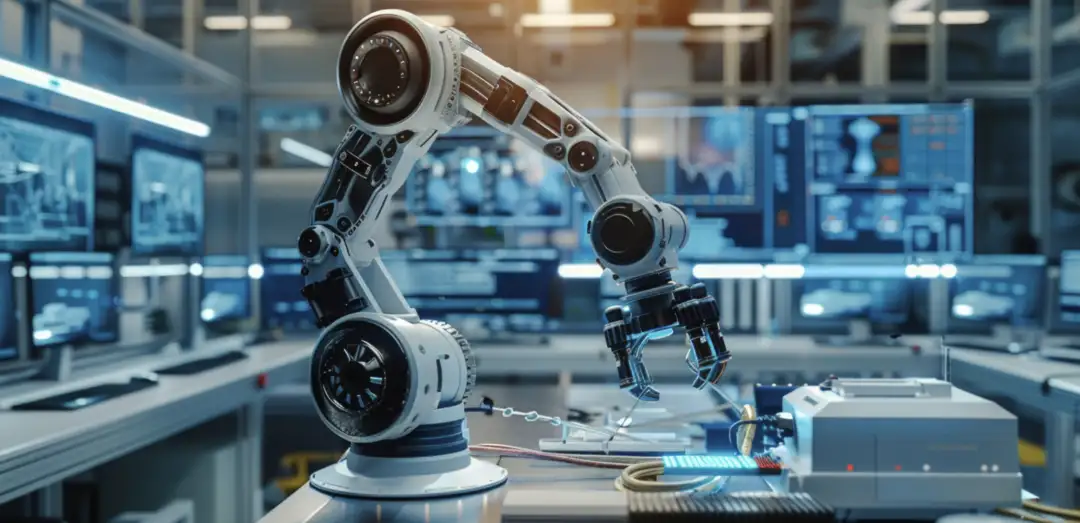
AI cannot replace doctors, only cooperation can achieve win-win results
Anna Huyghues-Despointes, Owkin’s head of strategy and marketing, once pointed out: “By collaborating with research institutions such as academic centers, we can jointly deploy infrastructure, prepare data, train predictive models, verify results, and publish collective results in top scientific journals. We always believe that collaboration is the key to promoting progress in medical research.”This perspective highlights the importance of collaboration in medical research.
In the past, doctors were generally cautious about AI, for example, they were worried about whether AI's diagnosis was reliable and whether it could really help patients. Some even thought it was just hype in the technology industry. However, with the continuous breakthroughs of AI in image recognition, disease prediction, and personalized treatment, people have gradually realized the potential of AI. For example, the Med-PaLM 2 model launched by Google achieved a high score of 86.5 in the USMLE medical qualification examination, which is close to or even exceeds the level of human doctors, which further proves that AI has a bright future in the medical field.
Despite the rapid development of AI, Wang Yongjun, deputy secretary of the Party Committee and dean of Beijing Tiantan Hospital affiliated to Capital Medical University, said that AI will not replace doctors, but should be regarded as a supplement and enhancement to clinical work. In fact, AI mainly plays a role in data analysis and auxiliary diagnosis, but when faced with complex situations such as clinical operations and emergencies, doctors' experience, professional judgment and adaptability are still indispensable. In addition, medical care is not just technology, but also care and empathy, and AI still needs to improve in this regard.
In the future, only when AI and doctors work together can we truly promote the progress of the medical industry and bring more comprehensive and higher-quality medical services to patients.
References:
